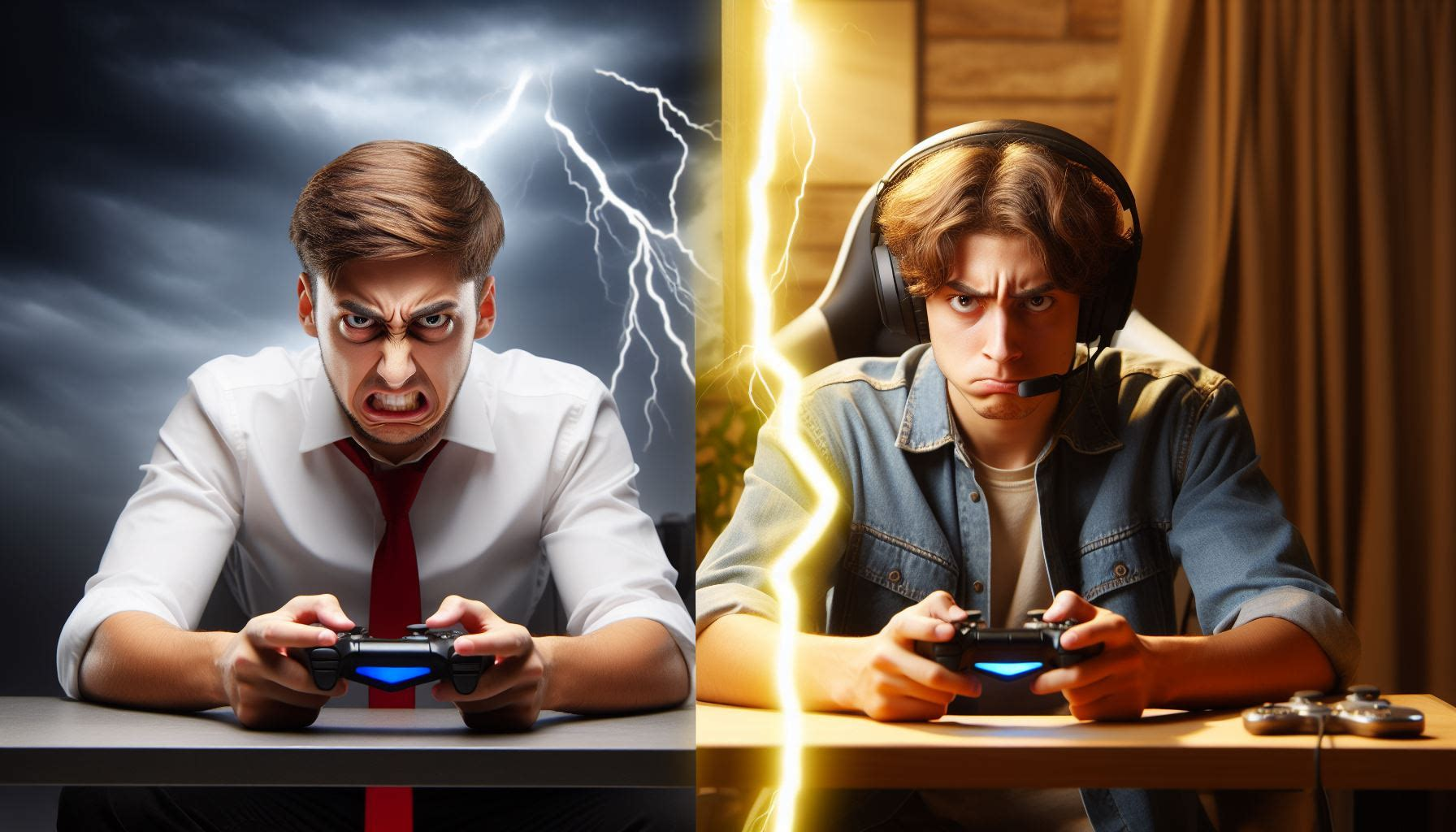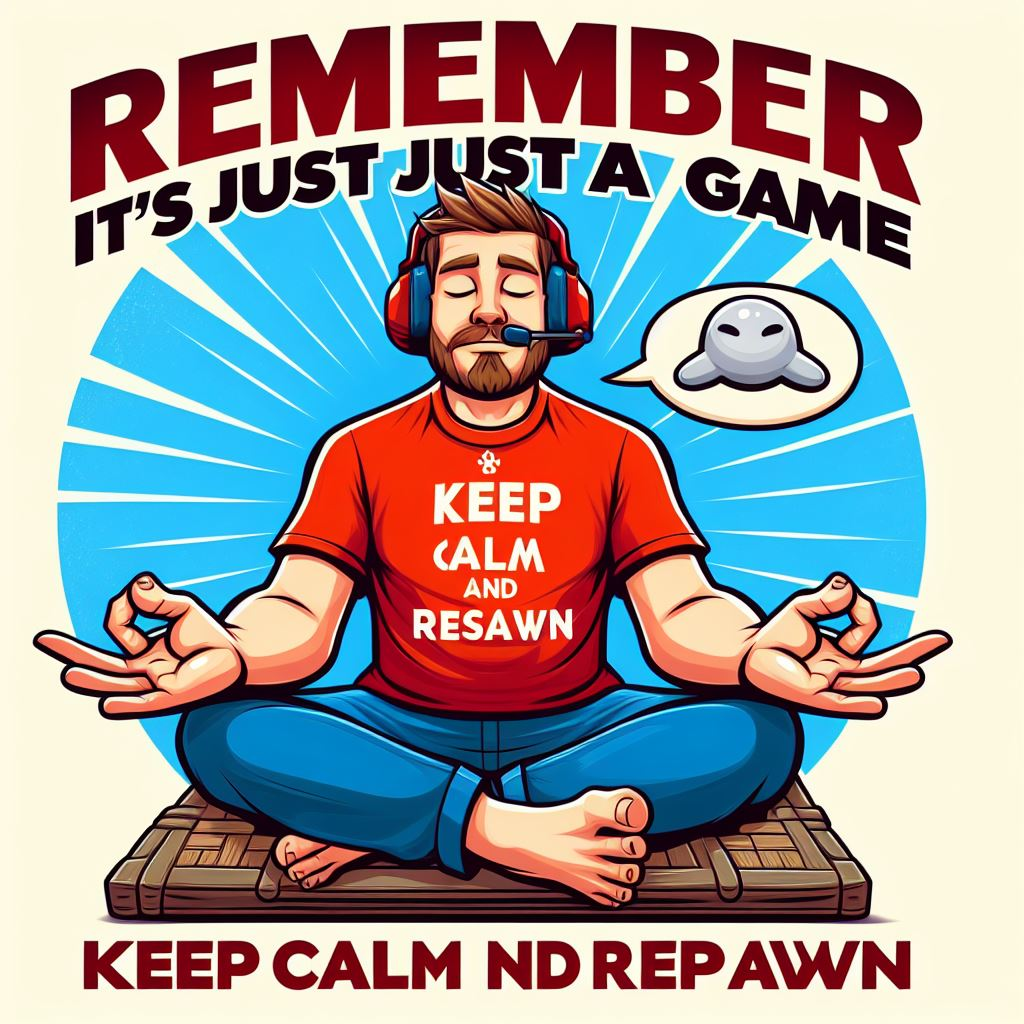What is Connection Between Gaming and Anger?

Disclaimer: The article is developed in partnership with BetterHelp.
Gaming can be a fun way to pass the time and connect with others. However, as gaming technology has advanced, gaming has grown beyond playing Nintendo in your bedroom or Pacman at the local arcade. These days, gaming is often an all-consuming hobby, with global events and exciting new releases all the time.
Gaming is awesome! It's a fantastic way to unwind, challenge yourself, and connect with friends. But sometimes, even the most fun gaming sessions can have their tricky moments, especially when frustration starts to creep in. Don't worry, it happens to everyone! Let's figure out why those feelings pop up and learn some cool strategies to keep your gaming experience fun and positive
The Gaming-Anger Connection
According to study nearly 41.9% of gamers deal with extreme anger at least once per week due to gaming. It increases particularly when it involves competitive and high-stakes scenarios. Which often affects strong emotional reactions from players. The intensity of these games, combined with the desire to achieve success leads to feelings of anger. This is especially true in multiplayer environments where the competitive pressure is present. In the digital world, anger can occur from various sources, including challenging gameplay, competition, and the occasional in-game setbacks or losses that every gamer faces from time to time. Let’s take a deeper dive into some of those causes.
Underlying Causes of Anger in Gaming
Understanding the root causes of anger in gaming contexts is important for addressing and mitigating these emotional responses. Several factors contribute to anger during gaming, including:
- Competition Pressure – Many games are inherently competitive. They are designed to play against each other or AI. This competition can be exhilarating, but it can also be a significant source of stress. Especially if winning is really important to them. The drive to win and excel can amplify feelings of frustration and anger when outcomes don’t align with expectations.
- The Freedom of Anonymity – The online gaming world can sometimes offer a level of anonymity that you can’t find anywhere else. Many people use gamer tags instead of their real names, allowing them to play and behave roughly with other fellow gamers. For example, players may feel good to express anger and frustration without the constraints. This is happening because of virtual interaction. No one is present face to face.
- Frustration from In-Game Challenges – Games are designed to challenge players, pushing them to their limits to overcome obstacles and progress. However, it can be quite frustrating when players come across challenges that seem complicated & looping in defect mode. That frustration can lead to anger.
- Psychological Investment – For many, gaming is not just a hobby but a passion. Hours of effort, achievement, and emotional investment are involved in virtual worlds. It makes every setback feel personal and every loss more touching. This deep level of engagement can make gamers particularly liable to feelings of anger. It is no exception when faced with in-game challenges or adversities.
- Underlying Mental Health Issues – Sometimes, the anger attributed to gaming doesn’t have anything to do with gaming at all. Instead, there are underlying mental health issues at play, making small aggravations in the game turn into bigger emotional outbursts. For example, mental health conditions, like bipolar disorder, can cause anger in some people. (To learn more about Bipolar anger and how to manage it, check out this advice from BetterHelp.)

Strategies to Manage Anger Related to Gaming
While experiencing anger during a game isn’t necessarily uncommon but its not healthy as well. There are several strategies you can try to help manage your emotions while playing games, including:
- Take breaks when you need them.
- Set realistic goals (and don’t be too hard on yourself).
- Learn and use relaxation techniques.
- Make sure you spend time doing activities besides gaming.
- Seek support from a mental health professional.
The most important thing is to acknowledge that you have an anger issue and try to catch yourself before it gets the best of you.
Conclusion :
The link between gaming and anger is complex. By understanding the underlying causes of gaming-related anger, individuals can better navigate these emotional landscapes. Adopting strategies to manage frustration & anger enhances the gaming experience and contributes to a more enjoyable and balanced life both online and offline. I would love to hear more remedies you implanted to control anger.

